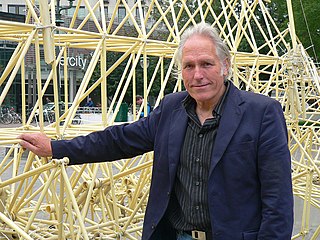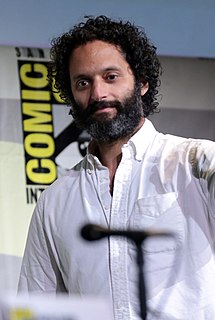A Quote by Kurt Vonnegut
If I were a physics teacher or a science teacher, it'd be on my mind all the time as how the hell we really got this way. It's a perfectly natural human thought and, okay, if you go into the science class you can't think this. Well, alright, as soon as you leave you can start thinking about it again without giving aid and comfort to the lunatic fringe of the Christian religion.
Quote Topics
Related Quotes
I think evolution should be taught as an accepted principle. I say that also as the daughter of a school teacher, a science teacher, who has instilled in me a respect for science. I think it should be taught in our schools. I won't ever deny that I see the hand of God in this beautiful creation that is earth. But - that is not a part of state policy or a local curriculum in a school district. Science should be taught in science class.
It turned out I was pretty good in science. But again, because of the small budget, in science class we couldn't afford to do experiments in order to prove theories. We just believed everything. Actually, I think that class was called Religion. Religion class was always an easy class. All you had to do was suspend the logic and reasoning you were being taught in all the other classes.
One can truly say that the irresistible progress of natural science since the time of Galileo has made its first halt before the study of the higher parts of the brain, the organ of the most complicated relations of the animal to the external world. And it seems, and not without reason, that now is the really critical moment for natural science; for the brain, in its highest complexity-the human brain-which created and creates natural science, itself becomes the object of this science.
Religion and science, for example, are often though to be opponents, but as I have shown, the insights of ancient religions and of modern science are both needed to reach a full understanding of human nature and the conditions of human satisfaction. The ancients may have known little about biology, chemistry, physics, but many were good psychologists.
I liked science very much. A science teacher in high school inspired me, and because of him, I began studying science at the university. But when I got there... well, the subject still attracted me a lot, but I had to do all these exams, and it was just like working in an office. I couldn't stand that.
What I think it really means is: I'm a teacher. I am a teacher. I teach all the time, as you do and as all of you do-whether we know it or not, whether we take responsibility for it or not. I hold nothing back because I want to see that light go off. I like to see the children say, 'I never thought of that before.' And I think, 'I've got them!'
When I got to MIT, I discovered a really interesting Master's program called the Science and Technology and Policy Program - it taught people with a background in STEM how to think about science and tech from a policy perspective. It was a great way to understand how to communicate science to a policymaker or a layperson.
That daydreaming seemed important at the time, but when I asked my teacher Katagiri Roshi about it, he said, "Oh, it's just laziness. Get to work." But as for discipline, I don't even use that word. I think more about passion or love. What I've really learned is the way the mind moves, and how the mind works. Rather than discipline, I know how to seduce my mind.






































